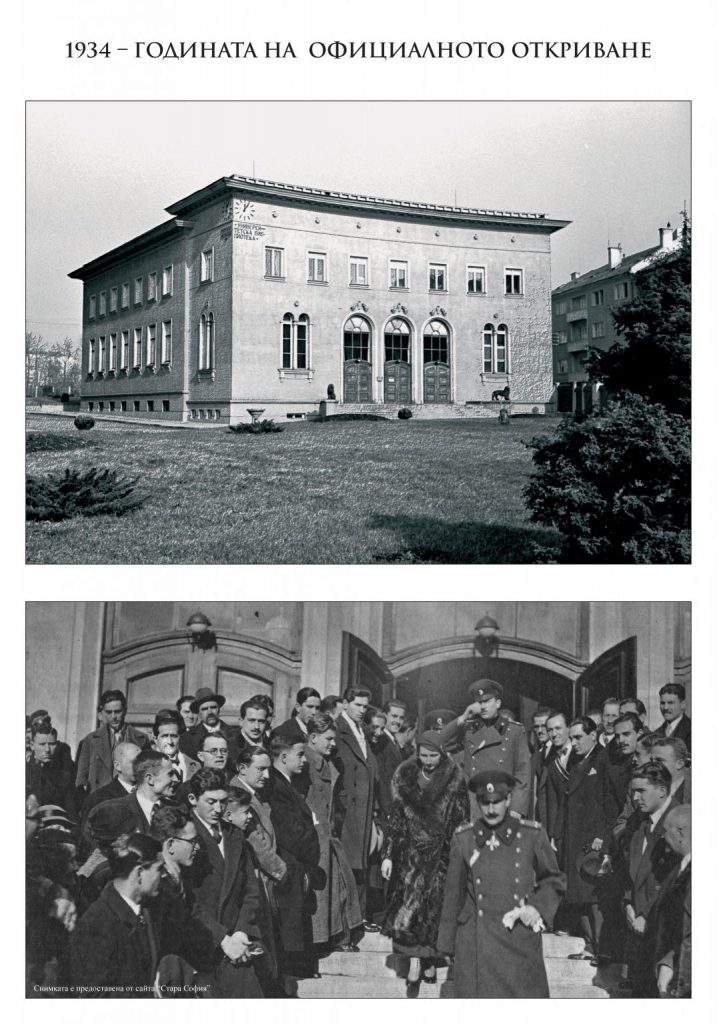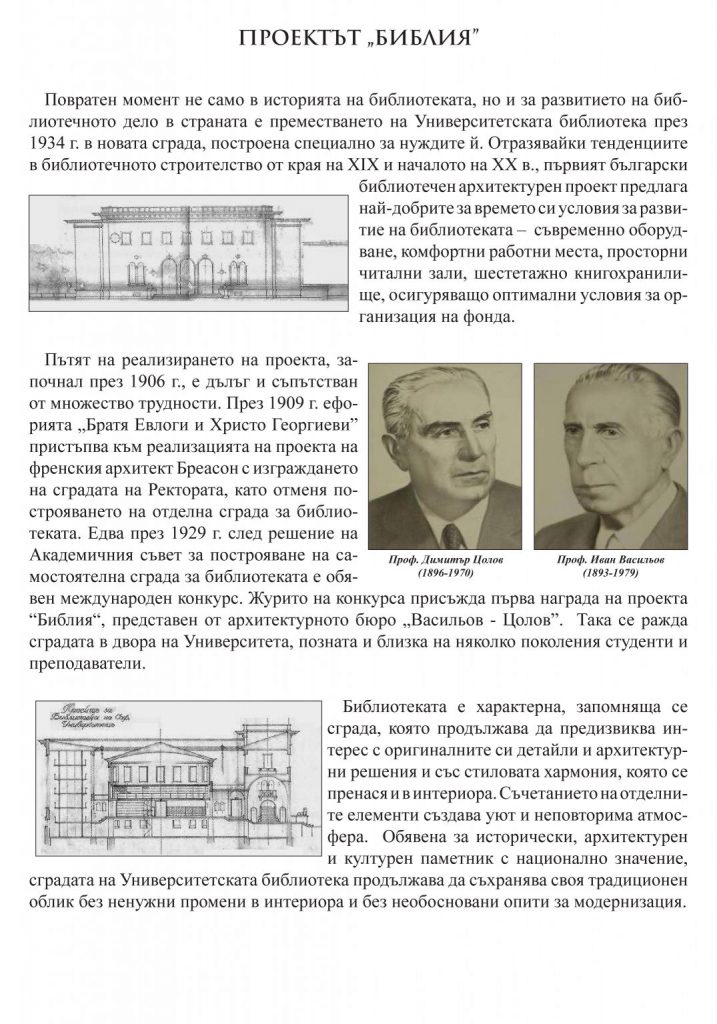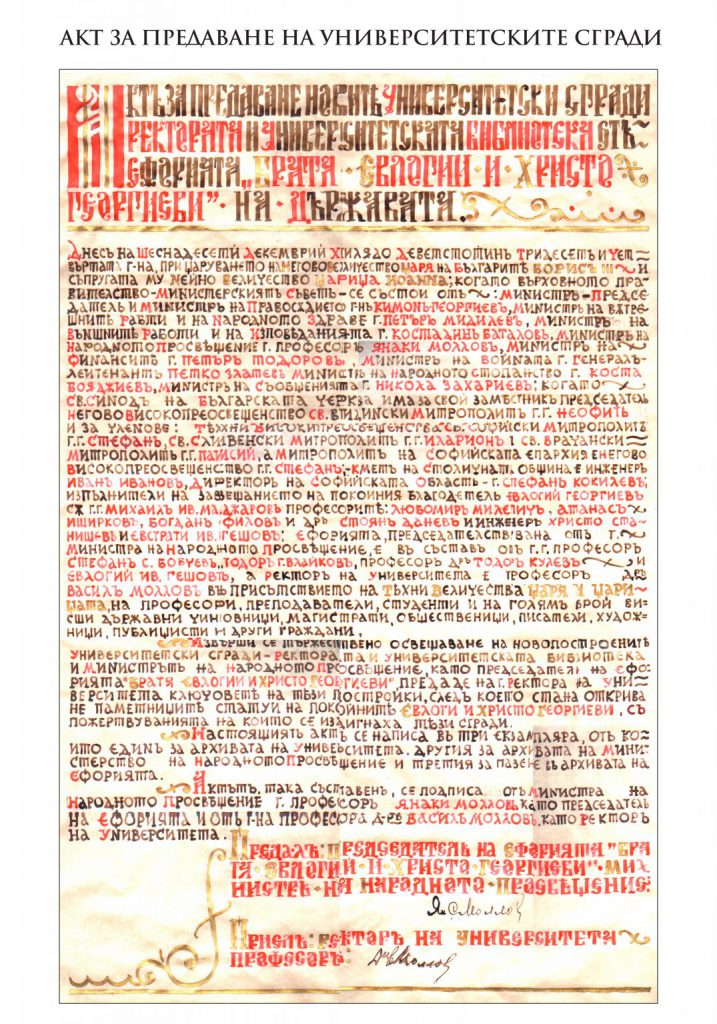Give me a library and I will establish a University



The University Library “St. Kliment Ohridski” is the first academic and the largest scientific library in Bulgaria. Established simultaneously with the School of Higher Education in 1888, in Sofia, the University Library plays an important role in the development of the Bulgarian science and education. The founder of the library is the first Rector of Sofia University Prof. Alexander Teodorov-Balan. The University Library was first located in a room within the premises of the First Secondary School for Boys, on Moskovska street 49, which back than accommodated also the School of Higher Education. The first library collection consisted of 4,243 volumes and was mainly formed through donations of doublets of books and periodicals from the National Library, from the library of the School Association “Poznai sebe si”, at the Petropavlovsk Seminary in Lyaskovets, as well as from book donations from various Bulgarian booksellers and publishing houses. During the second academic year substantial funds were dedicated to expansion of the library collections, and the first reading room was opened. In 1889 Prof. Ljubomir Miletich was appointed as Chief Librarian of the library. A Library Council was nominated and, later in the 1900, the first Regulations of the University Library were implemented. Only six years after its founding, in 1894, the Annual Report of the university Rector, states that the library holds approximately 15,000 volumes “comprising the best academic works of disciplines as history, philology, physics and mathematics, published in German, French and Russian languages.”
From April 1903 till 1936 Director of the University Library was Acad. Stoyan Argirov, founder of the Bulgarian library science. His dedicated professionalism in the next 33 years had a beneficial effect on the development of the Alma mater library as a modern European institution. He was particularly focused on the arrangement of the catalogues of the University Library as a necessary condition for the contemporary library and information services. Under his direct leadership and with his active participation, the alphabetical and systematic catalogue of the library was compiled.
Regular acquisition of new Bulgarian publications has begun after 1925, when the University Library became a depository library, and collected and preserved the Bulgarian literary heritage. An important moment in the library development was the construction of the university building especially designed for the library, which was opened on December 16, 1934. This was a turning point, not only for the expansion of the University Library, but also for the advancement of the librarianship in the country. The first library building, later declared a historical architectural and cultural monument, provides the best conditions for that time for future development of the library.
During the World War I and the World War II, the library’s collections grew strongly enriched through generous donations of rare and special editions from private collections of prominent Bulgarian scholars. Among them are the private libraries’ of Prof. Boyan Penev (1882-1927), Prof. Ivan Shishmanov (1862-1928), Assoc. Prof. Rayko Goranov (1869-1940), Prof. Atanas Ishirkov (1868-1937), Prof. Lyubomir Miletich. 1863-1937), Prof. Anton Shourek (1857-1926), Prof. Yosif Kovachev (1839-1898) and others; and the became a tradition.
The World War II disrupted the library function. Part of the library collections and the library catalogues were evacuated. During the bombing of Sofia, on March 1944, 15,000 volumes were destroyed. In 1945, the library reopened. In the 1950s, the modern form of the University Library was established as a library complex consisting of the Central University Library and 28 branch libraries. The efforts of the library management and the librarians who have been working in the library over the years have been directed to the fulfillment of the main library priorities, which include scientific collection development of a multidisciplinary collections in accordance with the development policy and scientific strategy of the Sofia University “St. Kliment Ohridski” and provision of library and scientific information services to the faculty, students and doctoral students.
Today, the Alma Mater library has an important and significant role in the academic development. The library is not only the second largest library in Bulgaria, with holdings of over 2,699,084 volumes, and the first automated library in the country, but also the first Bulgarian library successfully completing the process of retrospective conversion of traditional catalogues and has an active electronic catalogue including more than 1,232,000 bibliographic records.


